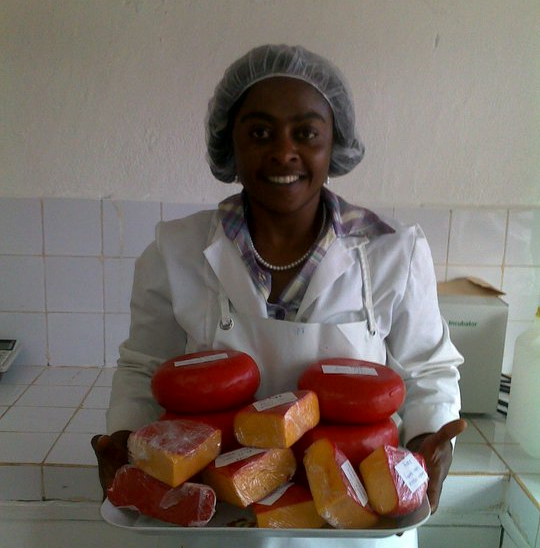“When we found out the enormous work the women here were doing manually, albeit in the background, we engaged in this dairy farm project to bring them to the fore,” Ms Shang said.
Today the Mbororo women constitute 75 percent of the dairy farmers who supply the Tadu milk processing factory. The factory makes yoghurt, butter and cheese using modern equipment.
About 300 smallholder dairy farmers supply milk to the factory and over 30,000 families rely on dairy farming under the cooperative as their source of income. The cooperative collects 3,000 litres of milk daily. The success story of Tadu has secured it support from the government and other agencies with interest in the dairy value chain.
The smallholders Dairy Development Project (SDDP) has facilitated the assembling of critical pieces of dairy development equipment and infrastructure such as range management appliances, water supply networks, electrical power supply lines, adequate cattle crossbreeding stations as well as adapted milk collection and transformation facilities.

